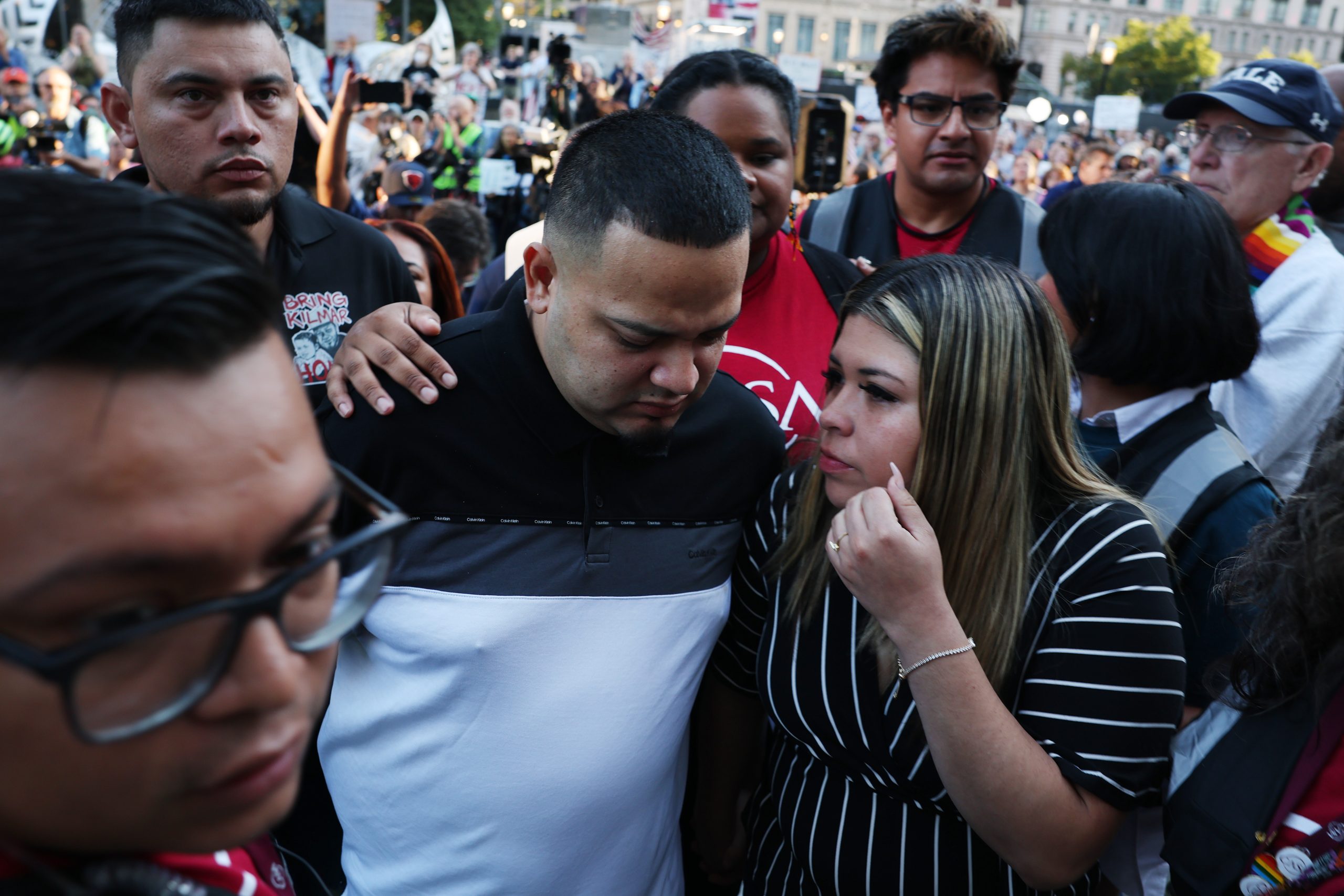Federal Judge Halts Deportation of Abrego Garcia to Uganda
The Trump administration’s renewed attempt to deport Kilmar Abrego Garcia, this time to Uganda, has been temporarily blocked by a federal judge. This latest development in the ongoing saga highlights the controversial immigration policies of the Trump administration and raises serious questions about due process and the treatment of asylum seekers. Abrego Garcia, a Salvadoran citizen residing in Maryland, first gained national attention earlier this year when he was wrongfully deported to CECOT, a notorious megaprison in El Salvador, under the Trump administration’s aggressive immigration enforcement policies.
A Controversial Deportation and a Questionable Return
Abrego Garcia’s initial deportation to El Salvador was widely condemned as a miscarriage of justice. Critics argued that the process lacked transparency and disregarded established legal procedures. His subsequent return to the United States in June, to face questionable criminal charges in Tennessee, further fueled concerns about the administration’s tactics. The charges themselves remain a point of contention, with many legal experts questioning their validity and suggesting they may be politically motivated. The fact that the administration resisted his return for an extended period only intensified the scrutiny surrounding the case.
Legal Challenges and the Fight for Due Process
The current legal battle centers on the administration’s attempt to deport Abrego Garcia to Uganda, a move that has been met with strong opposition from legal representatives and human rights advocates. The federal judge’s intervention underscores the significant legal challenges the Trump administration faces in its efforts to deport Abrego Garcia. The judge’s decision, while temporary, represents a crucial victory for those who advocate for due process and fair treatment within the immigration system. The specifics of the judge’s reasoning are yet to be fully disclosed, but the ruling suggests serious concerns regarding the legality and propriety of the proposed deportation to Uganda. The case raises broader questions about the Trump administration’s overall immigration enforcement strategy and its impact on vulnerable populations.
Implications for Immigration Policy and Human Rights
The Abrego Garcia case serves as a potent symbol of the ongoing debate surrounding immigration policy in the United States. It highlights the potential for abuse and injustice within a system characterized by rapid deportations and limited access to legal representation for many asylum seekers. This case has significant implications for the broader conversation about immigration reform, human rights, and the role of the judiciary in protecting vulnerable individuals from potentially unlawful government actions. The outcome of this legal battle will undoubtedly have a ripple effect, influencing future cases and potentially prompting a reassessment of the Trump administration’s approach to immigration enforcement. The ongoing legal challenges facing the administration suggest a growing resistance to its policies, and the international implications of these actions cannot be overlooked. The international community is watching closely as the case unfolds.
Conclusion:
The ongoing legal battle surrounding Kilmar Abrego Garcia’s deportation underscores the complexities and controversies inherent in US immigration policy. The federal judge’s decision to temporarily block his deportation to Uganda signifies a potential turning point, emphasizing the importance of due process and raising serious questions about the Trump administration’s immigration enforcement tactics. The case is likely to continue to generate significant debate and legal challenges in the coming months.
Based on materials: Vox





